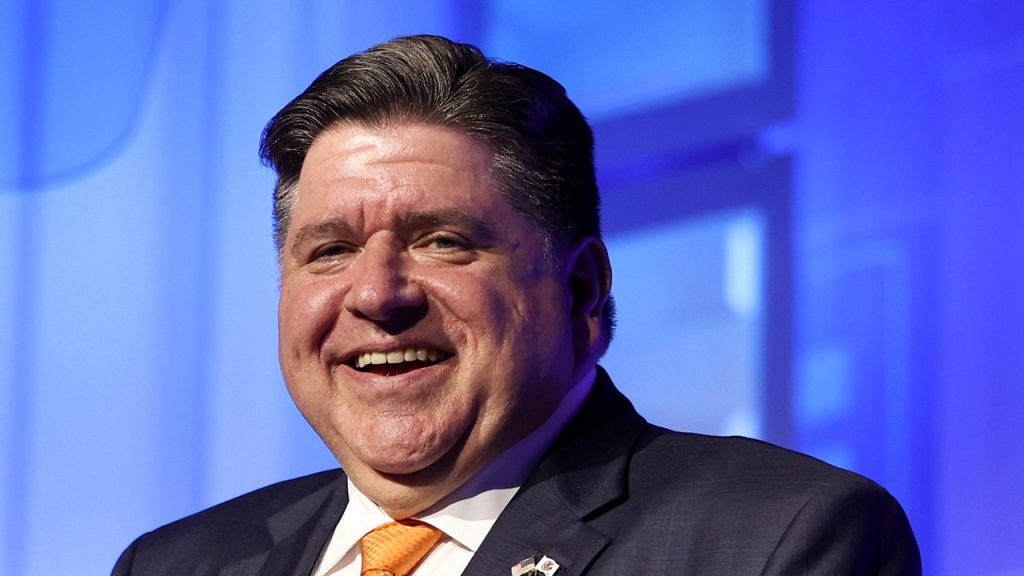Illinois Governor JB Pritzker has sparked attention with a recent call for mass protests during a speech in New Hampshire. In a fiery address, Pritzker denounced former President Donald Trump and his supporters, asserting they contradict the foundational values of the nation. His remarks have prompted a wave of reactions from various political figures, as Pritzker emphasizes the urgency of mobilization against perceived injustices.
| Article Subheadings |
|---|
| 1) Context of the Call for Protests |
| 2) Pritzker’s Accusations Against Trump |
| 3) Reactions from Political Opponents |
| 4) Pritzker’s Political Background and Intentions |
| 5) Implications for Future Political Climate |
Context of the Call for Protests
During a pivotal speech delivered in New Hampshire, a state known for its early positioning in the presidential primaries, JB Pritzker urged citizens to mobilize and engage in protests. This unprecedented declaration marks a significant escalation in political rhetoric, especially from a sitting governor, signifying that the political landscape is increasingly polarized. The specific context involves ongoing tensions surrounding key societal issues that Pritzker believes are being undermined by right-leaning politics, particularly those associated with former President Donald Trump and his administration’s policies.
Pritzker’s Accusations Against Trump
In his address, Pritzker did not mince words, describing Trump and his affiliates as “an affront to every value this country was founded upon.” These comments reflect a growing sentiment among some Democratic leaders who are calling for decisive actions against what they perceive as threats to democracy and civil rights. By declaring, “We must castigate them on the soapbox and then punish them at the ballot box,” Pritzker lays out a strategy that encourages active civic engagement and participation in the electoral process to counterbalance what he regards as extremist ideologies.
Reactions from Political Opponents
The backlash against Pritzker’s remarks was swift, particularly from conservative figures. Donald Trump Jr. raised eyebrows with a provocative inquiry on social media, questioning whether Pritzker was inciting violence against his father. This charge reflects broader concerns from some Republicans who accuse Democratic leaders of nurturing a climate of hostility and division. Meanwhile, Senator Eric Schmitt from Missouri welcomed those disenchanted with Pritzker’s governance to seek refuge in his state, underlying the rhetorical battle that continues to unfold in America’s political climate.
Pritzker’s Political Background and Intentions
JB Pritzker has served as Illinois governor since January 2019, leveraging his political platform to advocate for healthcare reform, economic development, and progressive values. He described his call for protests as an urgent action; a reflection of his belief that the integrity of American democracy is under siege. Pritzker’s history of activism positioned him as a prominent figure in the Democratic Party, and his recent speech strengthens his narratives as he potentially looks toward a higher political office in the 2028 presidential race.
Implications for Future Political Climate
Pritzker’s pronouncement could have significant implications for the trajectory of American politics. It signals a more combative stance among Democrats, potentially energizing grassroots movements in opposition to Republican ideologies. The emphasis on mass protests could inspire a nationwide mobilization not only for the upcoming elections but also for key issues such as healthcare, education, and systemic inequality. As Pritzker rallies supporters, the resulting Democratic engagement might lead to new strategies and coalitions aimed at counteracting significant Republican influence, especially in conservatively dominated regions.
| No. | Key Points |
|---|---|
| 1 | Governor Pritzker’s speech in New Hampshire called for mass protests against perceived injustices. |
| 2 | He accused Trump and his supporters of undermining the nation’s foundational values. |
| 3 | Republican leaders responded with accusations of inciting violence and division. |
| 4 | Pritzker’s political history signals his intent to leverage his platform for broader campaigns. |
| 5 | This mobilization may reshape the Democratic strategy leading into the next elections. |
Summary
Governor JB Pritzker‘s call to action represents a pivotal moment in contemporary American politics, underscoring the prevailing tensions and divisions that characterize today’s political climate. As protests are advocated, the implications of his speech extend beyond Illinois, potentially influencing Democratic strategies nationally. The responses from Republican figures further illustrate the polarized nature of current political discourse, suggesting that the battle for the hearts and minds of voters will intensify in upcoming electoral cycles.
Frequently Asked Questions
Question: What prompted Governor Pritzker’s call for mass protests?
The call for protests was prompted by Pritzker’s belief that the values of democracy and civil rights are being jeopardized by the actions of former President Donald Trump and his supporters.
Question: How did Republicans react to Pritzker’s remarks?
Republicans, including Donald Trump Jr. and Senator Eric Schmitt, criticized Pritzker’s speech, accusing him of inciting violence and division, with some even suggesting he was encouraging a larger upheaval against Republicans.
Question: What does Pritzker’s history in politics indicate about his future ambitions?
Pritzker’s role as governor and his progressive activism indicate a potential interest in pursuing a presidential bid in 2028, leveraging his platform to advocate for Democratic values on a national scale.


